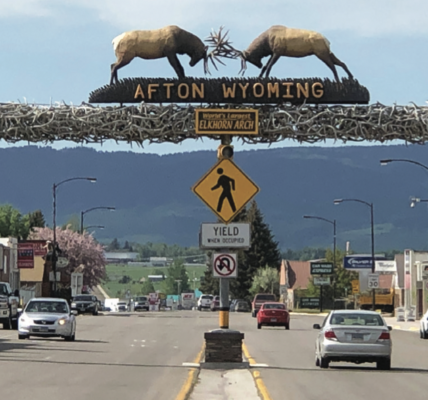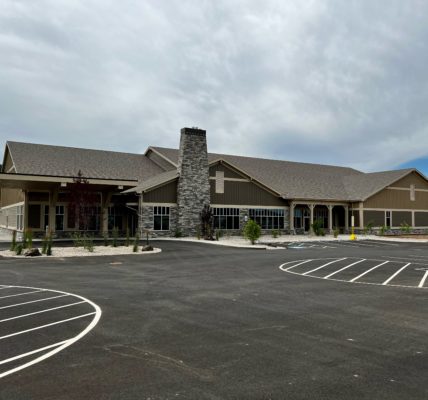By Leo Wolfson
Cody Enterprise
Via- Wyoming News Exchange
CODY — Backcountry outfitters and guides had long been exempted from Wyoming’s statewide lodging tax, but those days are no more. Under the new lodging tax passed in 2020, these entities are no longer excused from charging their customers a tax on lodging services.
The tax removes the state’s tourism budget from the general fund and adds a 5% sales tax on all lodging services provided within the state. Sixty percent of this tax goes into the Wyoming Tourism Account for the state Office of Tourism to promote its industry within the state and the remaining 40% is given to local counties and cities where it is collected for their respective tourism offices. Businesses can utilize the Travel Wyoming website for marketing at no cost.
Wyoming is one of 28 states to have a lodging tax. Neighboring Colorado does not have a statewide tax.
But some like State Rep. John Winter (R-Thermopolis), a former outfitter, have argued the Tourism Office offers disproportionately less marketing for their industry than others. Winters said he and State Rep. Albert Sommers (R-Pinedale) are introducing a bill in the upcoming legislative session that would exempt outfitters and guides from the current lodging tax.
“It just doesn’t make sense to make outfitters have to charge the clients,” he said. “It’s just not fair to charge extra for services they don’t provide.”
The Wyoming Department of Revenue instructs outfitters and guides to separate lodging from non-taxable services on their trips so that their entire invoices aren’t charged under the state’s sales tax. They already pay sales tax on meals, while standalone guiding services are not charged under any tax.
Winter said although a lodging tax may only make up a small portion of a $1,500 trip, it’s more of a moral issue for him than the actual financial impact.
State Rep. Sandy Newsome (R-Cody) noted the lodging tax is geared toward non-residents and while legislating for the lodging tax, the late former State Sen. Hank Coe estimated 85% of lodging tax revenues are collected from out-of-state visitors. Winter said on average 75-80% of his outfitting clients were non-residents.
“I don’t know anyone on vacation who made a decision about where they’ll go based on taxes,” Newsome said.
The tax allows local communities to enact up to 2% in additional lodging tax of their own, but outfitters and guides are still exempt from any of these local lodging taxes.
An amendment that would have eliminated Wyoming residents from having to pay the tax was rejected before the bill was passed.
Newsome helped write the lodging tax bill, called “Wyoming tourism account funding,” as a member of the Travel, Recreation, Wildlife and Cultural Resources committee. She said the tax is intended to be leveled on the user, not the business owners.
“It’s my belief that customers that book those trips should be paying lodging tax just as they’re paying sales tax,” Newsome said. “We charge lodging tax on campgrounds and it’s not a lot different situation with outfitters.”
She said didn’t know whether outfitters were purposely left off the exemption list when the bill was being crafted. During the legislative process, legislators rejected an amendment that would have not exempted outfitters. But later on, outfitters were still not exempted. The only groups mentioned on the exempted list are county fairs offering lodging through RV and camping.
“The whole lodging tax just got away from people,” Winter said.
The bill does not explicitly delineate what does and what does not constitute lodging.
According to the Department of Revenue, “(A) lodging service is defined as the provision of sleeping accommodations to transient guests” and includes “tents, campers, trailers, mobile homes or other mobile sleeping accommodations for transient guests.”
The State says this also includes any temporary sleeping arrangements used with outfitting such as tents and snow shelters.
Park County Commissioner Chairman Lee Livingston, also an outfitter, said only groups that base their business around lodging should have to pay a lodging tax.
“My primary business is not lodging,” he said, adding even if he were to have hunters stay at his home, he would never offer those same services to standalone travelers.
But figuring out where to draw the line on what is primary, Newsome said, could open a Pandora’s box to countless variabilities and rules that would be associated with their enforcement. For example, where would dude ranches, a service offering a variety of entertainment and lodging fall? Another ambiguity could arise for hotels hosting large conventions.
“You would have to kind of have to have some strong rules for how it functions,” Newsome said.
Commercial campgrounds and RV parks charge a lodging tax, despite not offering any brick and mortar structures for people to sleep in. Ryan Hauck, executive director of the Park County Travel Council, said the Yellowstone National Park lodges and campgrounds do charge a lodging tax, but campgrounds at state parks and national forests do not.






